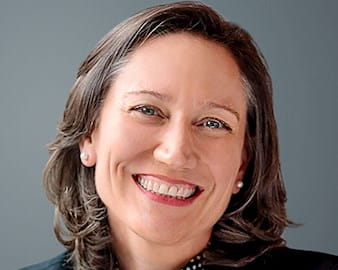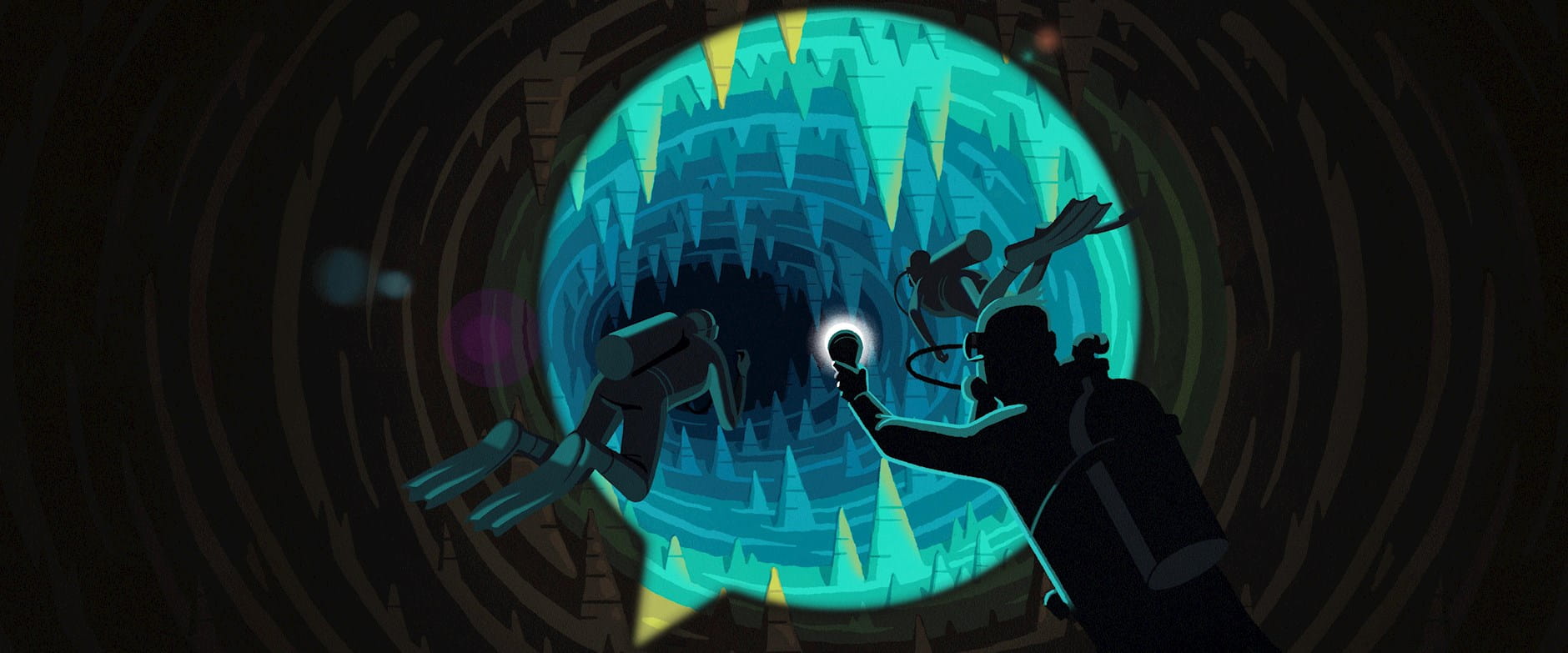From the Professor

The Background
The story of this class begins when I was a student at Booth. I looked at all the classes being offered and was dismayed by how few leadership classes there were. When the Harry L. Davis Center for Leadership was established in 2014, I was thrilled, but still wanted the leadership courses that I felt were absent.
When Rob Vishny, [the Myron S. Scholes Distinguished Service Professor of Finance and Neubauer Faculty Director of the Davis Center], took over the center in 2019, part of his strategic vision was bringing Interpersonal Dynamics to Booth. I had been referred to Rob for an open director position at the Davis Center by Stacey Kole, AM ’86, PhD ’92 (Economics), [clinical professor of economics and former deputy dean]. Rob reached out to me and asked me to teach the class instead. I said yes, as did Darryl Pure, [clinical associate professor of leadership], who also teaches the course.
That was 2019. A lot has changed since then. At first, I was commuting from my house in Mill Valley, California. Now, I live in Hyde Park. The course is oversubscribed every quarter.
The Approach
The goal of Interpersonal Dynamics is helping students sustain, if not build or strengthen, relationships through the process of giving and receiving feedback. You have to know how to do that productively to be a strong manager. That is the way you develop your people and yourself and strengthen trust on the team.
We’re aiming to replicate the microcosm of a team and practice what creates psychological safety for one another. Focusing on the interpersonal skill set leads to successful relationships and increased trust on a team and in the organizational culture.
The class is limited to 12 students. Each week has a theme: feelings and feedback, feelings and self-disclosure, connecting across difference, etc. There’s a weekly reading and sometimes a model or a framework. We include an exercise to bring to life what we are learning.
We then sit in a T-Group (T for training) and talk for the remainder of the three hours. Around us are flip charts with individual learning goals. A cofacilitator and I participate to ensure safety, guide students, and model productive communication and repair.
There are weekly writing assignments (10 percent of the grade) and a final paper (30 percent). Each student keeps a completely confidential learning journal, which is read by a coach outside the class. The journal and class participation account for the other 60 percent of the grade. There are no exams. There is mandatory attendance, and I do mean mandatory, and a strict punctuality rule.
In the worlds of software or brand management, we’re always looking for data that will help improve results. Well, feelings are data. If something is up or feels off, I need to use that as data to share with the other person so we can both learn and grow.
An important key to this class is learning about intention versus impact. Your intention is to be productive in a conversation, but if you’re doing something that is unproductive, wouldn’t you want to know? Wouldn’t you want to be able to change your behavior and try something new, to try to have a different impact?
“My willingness to be vulnerable is a leadership skill and choice, because it has the potential for reciprocity.”
— Professor Lisa Stefanac
The Takeaway
The primary thing students must be ready and willing to do is to be known.
The willingness to be known—to disclose, to show appropriate vulnerability—is a factor to performance in the workplace. By becoming more known, you’re gaining influence, building relationships, building trust. My willingness to be vulnerable is a leadership skill and choice, because it has the potential for reciprocity.
As we go through the quarter, the level of trust is built up so much that people are willing to share very personal things—such as sexual assault, the impact of divorce, abandonment, verbal abuse. That is part of their life experience, and it could show up in the workplace, because it could get triggered.
If we don’t allow issues like this to be spoken about, then as an employee, I can’t self-manage: I’m going to bottle it up and risk suddenly exploding or fully withdrawing. If I can’t share it, I’m not managing others’ perception of me and my emotions, because, in the absence of information, people will make up their own, often-incorrect explanations. My manager, my boss, my team leader is unaware of what’s affecting my performance but will know that something is off. The more I can appropriately disclose about me, the more control I have with how others perceive me.
As an example, I’ve been working with a consulting colleague on a client project. We have different working styles and live in different time zones. She is well-organized, while I am more spontaneous. Our skills complement—that’s why the client hired us together.
We had a deliverable due on Friday, and I needed to get my part to her on Wednesday by end of day. EOD for her is 5 p.m. PST, but for me it’s 11:59 p.m. CST.
At 7 p.m., she started bombarding me with text messages. I was having dinner with my five-year-old. I felt reprimanded, angry, micromanaged. She felt disrespected and, after 20 texts, ignored. Until we talked it out, neither of us understood the other. I learned the impact on her. She learned what happened to me. A simple solution: we decided EOD for us both is 5 p.m. PST.
Most people just let sleeping dogs lie. You hear them say, “It’s not worth it.” I say, replace the word it with you or me. “I’m not worth it,” or “You’re not worth it.” Otherwise, it becomes this progressive impoverishment of the relationship. The less I tell you about me, the less you will tell me about you, and we get further and further apart, and it becomes harder to do the work.
Having these conversations is an example of what I call the zone of productive discomfort. You and I might both be uncomfortable, yes, and that gives us the opportunity to reach another level in our relationship. Turning up the heat on a relationship works if both parties want to make it work. I give my students the chance to walk into that fire, and they usually take it.
From the Students
Alison Hankes, Evening MBA Student
Being in senior management, I have dealt with many tough situations, and struggled with communication in tough, people-focused situations. Within the safe T-Group space, I was able to spend more than 40 hours practicing the skills live. The class made me more confident giving tough feedback and handling any resulting discontent without becoming defensive.
This year, there was a lot of change and churn in my team at work. I was able to bring people together to have productive discussions on their disagreements and help them build strong relationships with one another.
My most important takeaway was that we can’t control how people “take” what we say, nor can others control how we “take” what they say. What you can control is how you deal with the repercussions.
Santiago Vazquez Aldana Urrutia, Full-Time MBA Student
I was expecting a class that would allow me to communicate better with colleagues and friends—but it gave me so much more. This class allowed me to readily recognize and name my emotions, mental models, and assumptions in communicating with others in any context, not just a professional one.
My most important takeaway was the opportunity to practice leading with my own intentions when communicating with others.
This and other tools I learned in class have made me a more effective communicator both at home and beyond. They have already helped me defuse situations at work that might have otherwise escalated unnecessarily.


